Buy Wine by the Case
192 products

- Red Wine, White Wine
- Garganega, Marsanne, País, Roussanne, Viognier, Xinomavro
- Sustainable
- Dry
- 750ml
About the Winery
Azienda Agricola Tessari

The Tessari family have Soave in their blood. For three generations they have been extracting delectable wine from the well cared for vines of their Monteforte d’Alpone vineyards. With only a little over a hectare of Garganega grapes in the prestigious volcanic solis of Soave Classico, Antonio Tessari hand dug his cellar back in 1933 and started the legacy that continues today with his grandchildren: Germano, Antonio and Cornelia.
From vineyard to bottle, these three siblings oversee it all; with unwavering respect for tradition, quality and passion for the art of winemaking. The volcanic soils of the hillside are rich with basaltic rocks and clays, which guarantees the health of the plant and the promotes the mineral and floral aromas that are characteristic of the Garganega grape. Truly artisanal wine making at it’s best.
Garage Wine Co.

Garage Wine was literally started in a garage in 2001, by Etobicoke expat Derek Mossman and his wife Pilar Miranda. Since then, the dynamic duo handcraft wines from a series of individual vineyards located in the Maule and Itata Valleys, in the south of Santiago, Chile.
Garage Wine Co makes wines from a series of individual parcels, small lots / bottlings of 8-22 barrels that include a series of dry-farmed field-blends of Carignan, Garnacha, Monastrell, País, Cinsault and Cab Franc grown on pre-phylloxera rootstock with small farmers in the Maule and Itata. Each wine is from a 1-2 hectare parcel in a different place.
Over the years working in the community they have raised a veritable posse of vineyard hands whose skills are working the vineyards the old way / the traditional way– originario. The vineyards are on the old coastal range of mountains closer to the Pacific and have granitic soils with cracks for roots to get deep down into.
When GWCo. speaks of the provenance of these wines they mean more than just the geological terroir. Derek and Pilar think the farming practices that have evolved over generations have as much to do with the wines’ personalities as the soils. All the wines are made by hand with native yeasts in small tanks, punched down manually and pressed out in a small basket press. GWCo is still very much a DIY operation and we still tow much of the crop back to the winery in trailers behind trusty pickup trucks 2,000 kilos at a time.
- Red Wine
- Pinot Noir
- Sustainable
- Dry
- Residual Sugar: 2.00 g/l
- Medium Bodied
- 750ml
- 13.00% alc./vol
About the Winery
Groupe Bellene
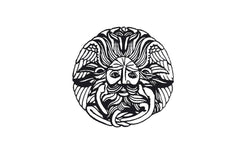
Led by Nicolas Potel in Beaune, Groupe Bellene is composed of the négociant arm Maison Roche de Bellene, the winery arm Domaine de Bellene, and a special back-vintage series under the Collection Bellenum label.
- Maison Roche de Bellene offers a complete range of wines, with an emphasis on individual terroirs from old vines of more than 40 years. All of the growers that Nicolas works with are either organic certified or sustainably farmed.
- Domaine de Bellene represents the wines that are produced and bottled from Nicolas Potel's private vineyard holdings.
- Collection Bellenum is a back vintage series that Nicolas Potel sourced from his friends in the region, offering a magnificent selection of bottled history. The wines have moved only twice in their lives, from the original cellar to Potel's and now to yours!
Nicolas Potel grew up at Volnay's Domaine Pousse d'Or, where his father worked. He trained abroad and returned home in 1996 to build a négociant business and started Maison Nicolas Potel, where he sourced grapes from good parcels, often working with the growers to improve the quality. By 2002, he was making 120 wines from 50 different appellations, and the rest is history!
Press Reviews
WineAlign
93 Points - Michael Godel
Les Quartiers De Nuits is yet another minuscule plot of a vineyard identified and chosen by Nicolas Potel, not quite one-third of a hectare, planted 96 years before this 2023 harvest. An early one for the most part, before the cold winds move in and ahead of Grand Cru neighbours like that of Echezeaux and Clos de Vougeot. There is a bit of mean intensity and streak in this singular, lieu-dit cru of a Bourgogne. The tannins are fierce, they lash upon the palate with severity and therefore the necessity to give time will become the requiem to success. Les Quartiers De Nuits is no shrinking violet and in fact the mix of botanical verdancy and bitters make up a formula which could never be solved in the first few years. The stuffing can’t be denied and the objective is perspicuous. Stay clear for a while. Drink 2028-2035.
- Red Wine
- Rotburger
- Natural, Sustainable
- Dry
- Medium Bodied
- 750ml
- 11% alc./vol
About the Winery
RR81
RR81 stands for 'Regional Road 81' - the road The Farm sits on, and a main artery through wine country. The RR81 approach to winemaking is simply fermented grapes with nothing added. One-off wines sourced from some of the best single vineyards in Niagara. These wines are made in the barn at The Farm with minimal intervention (just a few bins and an old basket press). The result equals some of the best, and most unique, wines coming out of Niagara.- White Wine
- Sauvignon Blanc
- Sustainable, Vegan-Friendly
- Dry
- Light Bodied
- 750ml
- 12.5% alc./vol
About the Winery
Leaning Post
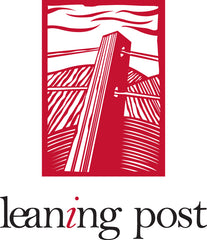
A leaning post is what you find at the beginning of a row of grapes, anchoring the wires that are the frame-work for growing grapevines. It is the beginning of an obsession to translate a time and place into liquid. Leaning Post wines take you to that beginning by finding small, unique plots of land in Niagara and putting them in bottle. Because after stripping away all the fancy buildings and high-tech equipment you are left with a place on this earth that grows wine unlike any other. When you taste that in a glass you just know it. Nadia and Ilya have had to rely on the support of family, friends and financial institutions to make the dream of owning a winery a reality. Leaning Post began as a virtual winery and is so proud to now have the quaint tasting room at 1491 Hwy 8 on their home property in Winona, Ontario.
Ilya and Nadia are the brains and passion behind Leaning Post Wines. It started with a dream to take unique, interesting single vineyard blocks in Niagara and turn them into distinctive, terroir driven wines. Nadia and Ilya first met in their hometown of Winnipeg, MB where their passion for wine and each other was born.
Ilya has been a winemaker in the Niagara Region for the last 17 vintages working at Daniel Lenko Estate Winery, Foreign Affair and now at Leaning Post Wines. Ilya is also a consulting winemaker at the Good Earth Winery. Ilya’s true passion in life is to make world renowned wines from Niagara that really showcase the distinct terroir that Niagara offers.
Press Reviews
Wines in Niagara
91 points - Rick VanSickle
The Sauvignon Blanc grapes were sourced from the Niagara Lakeshore sub-appellation. The wine was split between two different vessels (neutral French oak barriques and stainless-steel tank) to be aged on its lees for 7 months. This is a more elegant style of savvy, compared to the racy, zippy examples from New Zealand. It has a nose of kiwi, mango, grapefruit, subtle garden herbs and spice notes. It has a lovely, creamy texture with tropical fruits, limes, grassy/herbaceous notes and a bright, finessed finish. Can drink this now and for the next couple of years.
- White Wine
- Grauburgunder, Riesling, Sylvaner
- Biodynamic, Natural
- Dry
- 750ml
About the Winery
Huxelrebe
Weingut Bianka und Daniel Schmitt
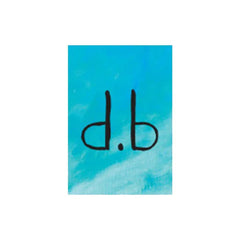
Bianka and Daniel took over the Weingut Schmitt in 2012 as the fourth generation to lead the winery. They are based in Wonnegau in the south Rheinhessen, centered in Flörsheim-Dalsheim. All of the vineyards are in Flörsheim-Dalsheim and neighbor villages Monsheim and Kriegsheim. Bianka and Daniel have been working their 16 hectares biodynamically for over a decade and are one of only 80 producers in Germany to be Demeter certified. They work with amphorae as well as used oak barrels and release a ‘Natur’ line that contains no added sulphur.
Here are Bianka and Daniel in their own words:
“Working biodynamically is a lifestyle that includes producing and spreading preparations in the vineyards as well as social interactions. The interactions between the life in the soil (like bacteria, mykorizen, plants as green cover and the vines) are composed with each other. Vines become stronger and get more vitality from a living soil, not from chemical treatments.
This active interaction in the soil life, the mutual strengthening of the plants result in stronger resilience for the vines which reflects the high quality of the grape, supports the presence of the individual soil types (calcareous soil covered by clay and partly loess, pebble). By working according to the biodynamic principles, biodiversity is supported as an automatic successor. As a result, the vineyards and the biotopes created by Bianka and Daniel offer a home for a diverse and local animal community.
After hand picking, the grapes are processed with or without skin maceration. And rest in wooden oaks (5000L, 3000L, 1200L, 600L) or clay amphorae (1200L, 300L) for at least 12 months on the whole yeast depot. The focus is on offering an optimal aging potential for the years to come. In order to support the collegial exchange and to enable operational training in the field of biodynamic agriculture, Bianka and Daniel and their winery are proud members of the Renaissance des Appellations, Demeter and Vinnatur associations.”
- Red Wine
- Sustainable
- Dry
- Residual Sugar: 2.00 g/l
- Full Bodied
- 750ml
- 14.50% alc./vol
Press Reviews
The Wine Advocate
94+ Points - Luis Gutiérrez
The red 2022 Os Canivéis Tinto comes from a place that doesn't have enough ripeness for Port and therefore is classified as F. It's from a selection of small plots with soil that is in transition between schist and granite, planted with a field blend of Casculho, Cornifesto, Tinta Carvalha, Trincadeira Preta, Dozelinho Tinto, Tinta Aguiar, Mourisco, Alvarelhão, Aramón, Chancelar, Bastardo, Tinta Roriz, Mourisco de Semente, Moreto, Touriga Nacional, Malvasia Preta and Tinta Nevoeira. It fermented in lagar with 30% full clusters and matured in neutral barrels. It's pale, delicate and perfumed, with notes of wild flowers and herbs, and it has a stony sensation on the palate, with very fine, elegant tannins and great balance. It comes in at 12.5% alcohol, with a pH of 3.65 and 4.8 grams of acidity. 2,100 bottles produced. It was bottled in March 2024. He also makes a white from the same zone and with the same name.
- Orange Wine, White Wine
- Albariño, Chardonnay, Grechetto, Ribolla Gialla
- Organic, Sustainable
- Dry
- 750ml
About the Winery
Cantina Cenci
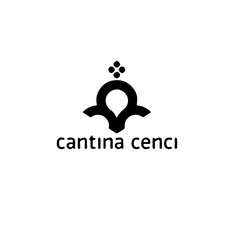
The Cenci Family has been dedicated to viticulture for over four generations, continuing to cultivate the vine with deep respect for the traditions and unique characteristics of the land once owned by the Olivetan monks. In the early 1950s, Mario—an enlightened and forward-thinking agricultural expert, and grandfather of Giovanni—selected clones of Grechetto, Sangiovese, and Malvasia from vines once cultivated by the Olivetan monks and traditionally grown intertwined with mulberry trees. He planted the first vineyards of the estate, and the wines made from those grapes were of such outstanding quality that he secured a long-term contract to supply Grechetto and Sangiovese in traditional flasks to the restaurant of a prestigious hotel in Perugia.
In 2012, following two years of renovation of the farmhouse, the new winery was inaugurated under the guidance of Mario Cenci, architect and brother of Giovanni. Thanks to cutting-edge equipment and winemaking techniques—combined with deep respect for tradition and the passionate leadership of Giovanni Cenci (viticulturist, enologist, food biotechnologist, and sommelier)—Cantina Cenci today produces wines appreciated by a niche audience of expert consumers.
The perfect balance between tradition and innovation has shaped a strong and distinctive brand identity.
Peninsula Vinicultores

Península Vinicultores was founded by two Masters of Wine: Andreas Kubach MW, leads production and Sam Harrop MW directs viticulture. Andreas, raised in Brazil and Spain by German parents, and Sam, a native New Zealander, bring a new-wave, international perspective to the Spanish wine landscape. Andreas believes that in the past century, and notably post-industrialization, Spanish producers have prioritized wines of style, focusing on winemaking and aging, rather than wines of place. This creates what he calls a “ceiling of interest” for terroir. Inspired to change this narrative, he is focusing on small, old-vine plots all over Spain that were either formerly abandoned or are at risk of being ripped out for to plant more lucrative cash crops. The wines also champion local, indigenous varieties traditional to their respective regions and best express site.
Štekar
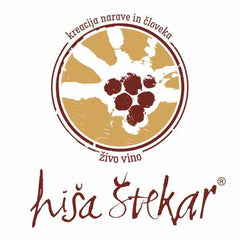
The Štekar family has been growing grapes in Goriska Brda since 1985. With 6 acres of vines planted in the stunning hills of western Slovenia, along with cherry orchards, Jure Štekar has committed to make wine the way his grandfather Emil taught his father: respecting tradition and avoiding invasive technologies.
Certified organic since 2006, Jure likes to play with long macerations, spontaneous fermentations and tiny SO2 amounts. His goal is to produce genuine wines that tell the story of his land and family.
- Red Wine
- Lagrein
- Sustainable
- Dry
- Medium Bodied
- 750ml
About the Winery
Kellerei Bozen - Cantine Bolzano

Cantina Bolzano, based in the town of Bolzano, traces its roots to two of Alto Adige’s most historic cooperatives: Santa Magdalena, est. 1930 and Cantina Gries, est. 1908. After deciding to merge in 2001, Cantina Bolzano was created. Bolzano is located in the middle of a valley basin surrounded by hilly vineyards that grow from 200 meters above sea level up to 1000. North and south meet in this valley, and the sun warms the stony soils with its pronounced diurnal temperatures, protecting the vines from the cold.
The average growers’ plots in Sudtirol averages only approx. 1 hectare, and the area, with its famed reputation and steep slopes, is an expensive area to farm. The member of Bolzano (approx. 300 in all) own many of the best vineyards throughout the region, including the Valle Isarco, and pool their resources to create top quality wines. And while no grower is certified organic, many practice organic viticulture and all of them adhere to natural practices in their vineyards. Most growers have lived on their farms with their families for generations. They protect their land and cultivate their vineyards as they have done for generations with total respect of the environment where they live.
- Red Wine
- Pinot Noir
- Sustainable
- Dry
- Residual Sugar: 2.00 g/l
- Medium Bodied
- 750ml
- 13.50% alc./vol
About the Winery
Groupe Bellene

Led by Nicolas Potel in Beaune, Groupe Bellene is composed of the négociant arm Maison Roche de Bellene, the winery arm Domaine de Bellene, and a special back-vintage series under the Collection Bellenum label.
- Maison Roche de Bellene offers a complete range of wines, with an emphasis on individual terroirs from old vines of more than 40 years. All of the growers that Nicolas works with are either organic certified or sustainably farmed.
- Domaine de Bellene represents the wines that are produced and bottled from Nicolas Potel's private vineyard holdings.
- Collection Bellenum is a back vintage series that Nicolas Potel sourced from his friends in the region, offering a magnificent selection of bottled history. The wines have moved only twice in their lives, from the original cellar to Potel's and now to yours!
Nicolas Potel grew up at Volnay's Domaine Pousse d'Or, where his father worked. He trained abroad and returned home in 1996 to build a négociant business and started Maison Nicolas Potel, where he sourced grapes from good parcels, often working with the growers to improve the quality. By 2002, he was making 120 wines from 50 different appellations, and the rest is history!
Press Reviews
WineAlign
94 Points - Sara d'Amato
A generous expression of village level Beaune from the Blanches Fleurs lieu-dit located at the northern border of Beaune close to Savigny les Beaune. Featuring a great deal of power and finesse, this lightly smoky pinot noir is bursting at the seams with black cherry, pomegranate and sweet red pepper. Pink peppercorn and rare meat play a supporting role in the flavour make-up of this engrossing and youthful pinot noir. Notes of rosebud coyly linger on the finish of excellent length. Best 2022-2025. Tasted May 2021.
- White Wine
- Sauvignon Blanc
- Sustainable
- Dry
- Light Bodied
- 750ml
About the Winery
Paddy Borthwick
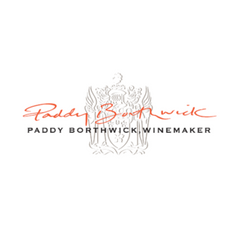
Proudly family owned, the Borthwick vineyard is an established vineyard situated in Gladstone, the heart of the Wairarapa. Producing quality wine for over a decade, Paddy, an experienced wine maker, has gained a reputation for producing consistently great wines. The twenty seven hectares of vines bordering the Ruamahunga River are growing on stony, free draining, alluvial soils, with a micro climate giving warm daily temperatures, cool nights and low rainfall; perfect conditions for producing distinctive, quality wines.
In line with the family’s legacy of international trade, 90 percent of the wine is exported around the world. Paddy believes in sustainability and best practice within a vineyard, developing an asset for generations to come.
Like the four P’s of marketing, we believe in the four P’s of Wine: Place, People, Passion, and Philosophy.
- Red Wine
- Cabernet Sauvignon
- Sustainable, Vegan-Friendly
- Dry
- Residual Sugar: 3.00 g/l
- Full Bodied
- 750ml
- 14.50% alc./vol
Press Reviews
Australian Wine Showcase
95 Points
- Orange Wine, White Wine
- Chardonnay, Picpoul, Pinot Grigio, Sauvignon Blanc
- Dry
About the Winery
Domaine Baud Père et Fils

The history of Domaine Baud dates back to 1742, and it wasn't until 1950 when René Baud, the 7th generation, rebuilt the vineyard which had suffered from the phylloxera crisis and two World Wars.
Starting with only 4 hectares, the vineyard progressively expanded to 20 hectares with the help of successive generations. Now, managed by siblings Clémentine and Bastien, the 9th generation, the estate continues to flourish and grow, with a strong commitment to sustainable viticulture and preserving the traditions and style that makes the wines of the Jura so unique and incredible.
The estate achieved the Terra Vitis certification in 2014 for its eco-friendly work and environmental preservation.
Paddy Borthwick

Proudly family owned, the Borthwick vineyard is an established vineyard situated in Gladstone, the heart of the Wairarapa. Producing quality wine for over a decade, Paddy, an experienced wine maker, has gained a reputation for producing consistently great wines. The twenty seven hectares of vines bordering the Ruamahunga River are growing on stony, free draining, alluvial soils, with a micro climate giving warm daily temperatures, cool nights and low rainfall; perfect conditions for producing distinctive, quality wines.
In line with the family’s legacy of international trade, 90 percent of the wine is exported around the world. Paddy believes in sustainability and best practice within a vineyard, developing an asset for generations to come.
Like the four P’s of marketing, we believe in the four P’s of Wine: Place, People, Passion, and Philosophy.
Zuani

Zuani winery is located in the heart of Collio, Friuli, a hidden appellation between the Adriatic Sea and the Alps. Coming from a long tradition of winemakers in Croatia that goes back to the 19th century, Patrizia Felluga saw her dream come true when she acquired the estate and the vineyards in 2001. Today, her son and daughter have taken over the winery; producing exclusively white wines. Everything hinges on one exceptionally well exposed “cru”, or vineyard, on a gentle hillside where about eleven acres of vines and gardens surround the Zuani cellar.
The varietals planted are Tocai Friulano, Chardonnay, Pinot Grigio and Sauvignon, a carefully chosen range that produced the first vintage of Zuani Collio Bianco. The Zuani winery embodies the Felluga family winemaking heritage and expresses the fundamental unity of the traditional aspects of Friulian varieties with their more modern side.
- Red Wine, White Wine
- Chardonnay, Pinot Noir
- Sustainable
- Dry
- Medium Bodied
- 750ml
About the Winery
Cordero San Giorgio
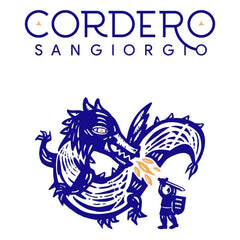
Cordero San Giorgio is a new beginning in Oltrépo-Pavese for three siblings who grew up surrounded by their family’s vines at the legendary Vietti Estate in Castiglione Falletto in Barolo. The siblings Francesco, Lorenzo, and Caterina Cordero, are grandchildren of Luciana Vietti & Alfredo Currado, one of the pioneers of the first Barolo crus and considered the “father of Arneis.” Their father is Mario Cordero, Alfredo and Luciana’s son-in-law, who was the company’s co-owner from the beginning of the ‘80s until 2016 when it was sold.
Cordero San Giorgio is located in Santa Giuletta, a village sitting on the first hilly belt of the territory, an area made up of valleys that fan out over the Po Valley with steep slopes and thick ridges. The composition of the soil makes their site particularly suitable for the production of Pinot Nero, making it possible to obtain wines with maximum varietal expression and a strong territorial identity.
The Oltrepò Pavese is a hilly triangle of land in Lombardy, embraced by Piedmont, Liguria, and Emilia-Romagna. A territory dedicated to the cultivation of vines and the culture of wine for centuries: a land of both cultural and gastronomic encounter and exchange. Cordero San Giorgio is in the town of Santa Giuletta, and focuses on working with Pinot Nero, Pinot Grigio and Chardonnay.
- Sparkling Wine, White Wine
- Sémillon
- Sustainable, Vegan-Friendly
- Dry
- Light Bodied
- 750ml
- 12.50% alc./vol
About the Winery
Château Haut-Grelot
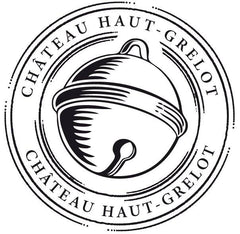
Château Haut Grelot is located in Saint Ciers Sur Gironde, approximately 50 kms north of Bordeaux, on the right bank of the Gironde Estuary. It was established by the Bonneau family in 1922 and now run but the 4th Generation. Today Château Haut-Grelot comprises 58 hectares of vineyards and is run by Céline and Julien, who was recently awarded the title 'Best Young Talent' in Bordeaux.
The vineyards are made up of sandy-gravel on the hillsides bordering the Gironde Estuary and sand-clay-silt on the hillsides further inland. Blaye Côtes de Bordeaux benefits from an ideal microclimate where there is a high level of sunshine and enough rain to guarantee the perfect environment for grape production. As a result the reds are fruity and concentrated and the whites are fresh, vibrant and delicate.
- Red Wine
- Grenache
- Organic, Sustainable
- Dry
- 750ml
- 12.5% alc./vol
About the Winery
Domaine Peter Sichel
Tucked away in a hidden valley in a remote corner of the Languedoc-Roussillon lies a truly special place: the village of Cucugnan. Historically, there was much wine produced here, given its isolated location, but gradually the local people moved away to the towns. There are now just 130 people living in the village. As the vineyards were left mostly abandoned, the local flora and fauna were permitted to thrive. Cucugnan became a unique area, full of biodiversity, which shines through in the rare plants and flowers that grow there today.
Peter Sichel (of the Bordeaux négociant family) first discovered this valley on a road trip with a friend in the 1960s. He was so spellbound by the place that he bought a house there and, in 1988, planted a vineyard. The project grew, albeit slowly, but the arrival of Peter’s thoughtful and environmentally inspired grandson, Alexander Sichel, has turned the Domaine Peter Sichel project completely around.
Since 2019, Alexander has converted the estate to organics and biodynamics, achieving organic certification in 2022. Furthermore, he is committed to supporting polyculture in and around the vineyards, even enlisting the help of a PhD programme from a Dutch university to identify the incredible array of plant life in the vineyard.
Alexander’s grandfather planted the vines between 30-40 years old. Parcels of Grenache, Syrah, Carignan, and Roussanne lie mostly on the best slopes of the valley. Starting from 350-500 metres’ altitude, these slopes have very little topsoil; the roots go almost straight into the bedrock. The viticultural team here has done much work to focus on the unique characteristics of each parcel to express the terroir of this stunning valley in the most authentic way.
Press Reviews
WineAlign
92 points - Megha Janghyala, S.J.D., DipWSET.
This is a light red wine or perhaps a very dark rosé but either way it is charming in an unaffected, guileless way. Grapes are steeped in their skins for a short period of time, just 2.5 days, before they are pressed. The separated juice finishes fermentation in a small concrete tank. As the producer recommends, I would drink this wine over the next couple of years, while it is still young and fresh. I appreciate the clarity of fruit on the nose and palate here - red cherries, strawberries, raspberries, alongside fresh herbs. The palate is sprightly and flavourful, with impalpable tannins and cheerful acids, while the finish is long and perky. Tasted March 2025.
91 points - Michael Godel
The follow-up Montanha to what was a most excellent 2023 representing the hills of Cucugnan. Lesser stature as grenache but only in relative terms when you consider the bigger and more impressive Terre Rouge. Works the clay and limestone terroir with Sichel’s infusion style of winemaking to modernize and prepare grenache in the most succulent way possible. As you will find here but also take note of the very modest 12.5 percent alcohol frame which feels even lighter and brighter in the early freshness of a wine indicative of 2024. Some will bemoan the lack of heft and stuffing while others will bask in the light, vim, relish and vigour of this transparent and trim varietal wine. Drink 2025-2028. Tasted March 2025.
91 points - John Szabo, MS
The 2024 Montanha, "Mountain", sits somewhere between light red and deep rosé in colour like its predecessor, made as it is from a short 'infusion', 2.5 days, of unspecified ''mountain grapes'. ("raisins montagnards") grown in the heart of a wild, natural park with parcels surrounded by forests and biodynamic farming applied. The nose is open and fragrant, very fruity and pure, with lovely fresh strawberries and bright sour cherry flavours, also rose petals and orange peel, inviting and engaging. The palate is light and fresh but also flavourful, with impeccable balance and sapidity. A great project from the Sichel family to follow; drink or hold 2-3 years - this should turn nicely savoury in time. Tasted March 2025.
90 points - David Lawrason
This is an ultra-pale grenache from old vines at high altitude. It has a fragrant, pretty nose of red rose, candied strawberry, wet stone and a touch of hay. It is medium-full bodied, quite, taut and lean yet very flavourful. Very firm and sour edged. The length is excellent. Tasted March 2025
- Sparkling Wine
- Chardonnay, Pinot Noir
- Sustainable, Vegan-Friendly
- Dry
- Medium Bodied
- 750ml
- 12% alc./vol
About the Winery
Leaning Post

A leaning post is what you find at the beginning of a row of grapes, anchoring the wires that are the frame-work for growing grapevines. It is the beginning of an obsession to translate a time and place into liquid. Leaning Post wines take you to that beginning by finding small, unique plots of land in Niagara and putting them in bottle. Because after stripping away all the fancy buildings and high-tech equipment you are left with a place on this earth that grows wine unlike any other. When you taste that in a glass you just know it. Nadia and Ilya have had to rely on the support of family, friends and financial institutions to make the dream of owning a winery a reality. Leaning Post began as a virtual winery and is so proud to now have the quaint tasting room at 1491 Hwy 8 on their home property in Winona, Ontario.
Ilya and Nadia are the brains and passion behind Leaning Post Wines. It started with a dream to take unique, interesting single vineyard blocks in Niagara and turn them into distinctive, terroir driven wines. Nadia and Ilya first met in their hometown of Winnipeg, MB where their passion for wine and each other was born.
Ilya has been a winemaker in the Niagara Region for the last 17 vintages working at Daniel Lenko Estate Winery, Foreign Affair and now at Leaning Post Wines. Ilya is also a consulting winemaker at the Good Earth Winery. Ilya’s true passion in life is to make world renowned wines from Niagara that really showcase the distinct terroir that Niagara offers.
Press Reviews
Wines in Niagara
93 Points - Rick VanSickle
The Hemeris Vineyard on the Beamsville Bench, which is a favourite farm of Senchuk’s, is a gem owned by the Kouvassilopoulos family. The over 40-year-old Chardonnay vines are the base for this traditionally made sparkling wine that spends six months in oaks barrels, with 42 months on the less, and a 6 g/l dosage. It shows a lovely golden colour in the glass with a lively bubbly. It starts with autolytic/biscuit notes on the nose followed by lemon curd, golden apple, pear, white flowers and brioche. The bead on the palate is vigorous with a rich, creamy, saline entry and just a hint of flint. It’s fresh and finessed with lemon tart, stone fruits, nutty accents, toasty brioche and mouth-watering acidity on the lifted, fresh finish.
- Sparkling Wine
- Sustainable
- Medium Bodied
- 750ml
- 12% alc./vol
About the Winery
Lighthall Vineyards
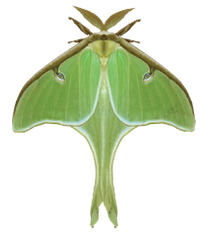 Lighthall Vineyards is a small, proud, low volume and high quality winery located in enchanting Prince Edward County, Ontario, Canada. All their wines are produced in a non-interventionist manner and fuelled by passion as hearty as our vines. They also make cheese, designed to pair with their wines.
Lighthall Vineyards is a small, proud, low volume and high quality winery located in enchanting Prince Edward County, Ontario, Canada. All their wines are produced in a non-interventionist manner and fuelled by passion as hearty as our vines. They also make cheese, designed to pair with their wines.
- Red Wine
- Pinot Noir
- Sustainable, Vegan-Friendly
- Dry
- Medium Bodied
- 750ml
- 13.4% alc./vol
Press Reviews
Wines in Niagara
95 points - Rick VanSickle
This Pinot Noir is a blend of fruit from three different vineyards from favourite appellations across Niagara. After being transferred to French oak barrels (25% new, 25% 1-year-old barrels, 50% older barrels) the wine is aged for 15 months. The nose shows a generous array of red berries, floral notes, earth and perfumed spice notes. It’s rich and savoury on the palate with brambly raspberries, ripe cherries, strawberries, tobacco, and spice on a silky-smooth finish that’s long and lifted.
- Red Wine, Rosé Wine, White Wine
- Garganega, Grenache, Lambrusco di Sorbara, Nero d'Avola, Pinot Nero, Pinot Noir, Syrah
- Dry
- 750ml
About the Winery
Azienda Agricola Tessari

The Tessari family have Soave in their blood. For three generations they have been extracting delectable wine from the well cared for vines of their Monteforte d’Alpone vineyards. With only a little over a hectare of Garganega grapes in the prestigious volcanic solis of Soave Classico, Antonio Tessari hand dug his cellar back in 1933 and started the legacy that continues today with his grandchildren: Germano, Antonio and Cornelia.
From vineyard to bottle, these three siblings oversee it all; with unwavering respect for tradition, quality and passion for the art of winemaking. The volcanic soils of the hillside are rich with basaltic rocks and clays, which guarantees the health of the plant and the promotes the mineral and floral aromas that are characteristic of the Garganega grape. Truly artisanal wine making at it’s best.
Cantine Barbera
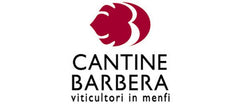
Cantina Barbera is located in the Menfi Coast, on the west coast of Sicily. The vineyards are about one mile from the Mediterranean Sea: an uncontaminated deep blue sea, facing South, where low cliffs and sandy dunes create a beautiful environment protected by the Belice River Natural Reservation Fund.
A third generation farmer, Marilena Barbera farms the Inzolia that her grandfather planted in the 20's, just as she attends to the native varietals that are the new frontier of her own generation: Perricone, Nerello, Alicante, Nero d'Avola and Grillo. Marilena makes her wines praticticing organic farming and natural winemaking, while paying utmost respect to Menfi's terroir.
"At the winery, I chose to work only with spontaneous fermentations and to adopt non invasive winemaking practices, in order to respect the unique personality of Sicilian native grape varieties and the beautiful land to which they belong."
Mas Carlot

Mas Carlot is situated in the south of the Rhône Valley, extending across 76 hectares of pebbly land southeast of Nîmes. Originally a 17th century farm, this beautiful estate was resurrected in the 1960's by the Blanc family—it is currently run Cyril Mares of the neighbouring and equally reputable property, Mas Bressades.
The appellation of Costières de Nîmes used to be considered part of eastern Languedoc but the climate, soil, topography and wine are far closer to those just over the river in the Southern Côtes du Rhône. It is now a region very much on the up and is widely recognized as a great source of excellent value wine.
- White Wine
- Chenin Blanc
- Sustainable
- Dry
- Residual Sugar: 2 g/l
- Medium Bodied
- 750ml
- 12.5% alc./vol
About the Winery
Radford Dale
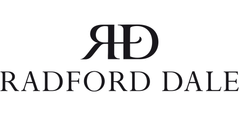
Radford Dale and The Winery of Good Hope are two brands made by the same people, in the same winery. The team behind these wineries has been an industry leader since the 1990s in chemical free farming, and more recently in low and no sulfur winemaking. They are a founding member of PIWOSA (Premium Independent Wineries of South Africa) which sets ethical, environmental and social uplift standards. Recognizing the social inequality present in South Africa Radford Dale has also set up a trust called Land of Hope to help facilitate bright futures for children, focusing heavily on education.
Alex Dale who owns and manages both projects is an Englishman who grew up spending summers in Burgundy, France. He moved there in his late teens to follow a passion for winemaking and also opened a wine bar in Beaune. He lived in Burgundy for many years before moving to South Africa in 1998, starting Radford Dale with Ben Radford, an Australian. The idea was to produce wines using modern techniques and technology with a healthy respect for tradition, something Alex came to understand well while living in Burgundy.
Wines are made with minimal intervention in order to best express each vineyard’s individuality.
- Red Wine
- Grenache, Syrah
- Organic, Sustainable
- Dry
- Residual Sugar: 2.00 g/l
- Full Bodied
- 750ml
- 14.00% alc./vol
Press Reviews
Wine Enthusiast
90 Points — Reggie Solomon
This is a wine to pair with an evening of contemplation. Blackberry, black plum and dried black cherry swing dance in lockstep on the nose with an undercurrent of forest floor that lends added depth. Silky in texture, the wine flirts with Darjeeling tea and a dew-glistened earthy core that shines.
- Fortified Wine, Sweet Wine, White Wine
- Gouveio, Malvasía, Viosinho
- Sustainable
- Residual Sugar: 94.00 g/l
- Full Bodied
- 750ml
- 18.50% alc./vol
- Red Wine
- Sustainable
- Dry
- 750ml
About the Winery
Oenops
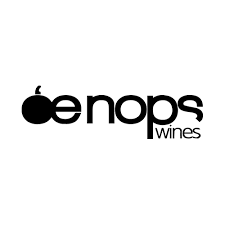
Founded in 2015, Oenops, meaning ‘wine face’, is a pioneering project whose mastermind is the talented winemaker Nikos Karatzas. Following the micro-négociant system, Oenops aims to produce high quality, great value wines. Rather than owning vineyards, the company sources grapes from selected plots across Greece’s best terroirs, with a focus on cool-climate sites and old vines of indigenous varieties.
At the core of the company’s philosophy is the close partnership with ambitious growers who share a same sustainability-focused approach. Oenops mission is to source great fruit and craft wines that fully express its quality and sense of time and place. By using simple methods, led by the profile of the grapes rather than by any winemaking protocols, the company has built a range of authentic, fruit-forward wines that bring out the best of each variety, terroir and style.
The team tastes meticulously and tailors its approach to each plot and variety, based on the core philosophy and ethos. By vinifying each plot and variety separately the team has grown an understanding of the specificity of each vineyard and of the work done each year, in turn allowing for improvement in each vintage.
A repertoire of indigenous grape varieties, such as Malagousia, Assyrtiko, Vidiano, Roditis, Xinomavro, Limniona, and Mavroudi, is expressed through different styles of Greek varietal wines and in labels that have gained widespread recognition, among consumers and critics alike.
What the team at Oenops strives for is, ultimately, to produce tasteful, elegant wines that work as perfect companions to every meal and special occasion.
Press Reviews
WineAlign
92 points (2022) - Michael Godel
Hard to find more brightness, transparency and modern love from xinomavro today, especially as it pertains to the Macedonian kind. Crisp, crunchy and ultra authentic, a varietal obviousness and an abiding by its makers that clearly defines the what, where and how of the grape. Spot on example. Drink 2024-2026. Tasted July 2024.
- Red Wine
- Sangiovese
- Sustainable
- Dry
- Residual Sugar: 3.00 g/l
- Full Bodied
- 750ml
- 14.50% alc./vol
About the Winery
Cortonesi

“I’m a lucky man who has been given the opportunity to realize my dream and continue my family’s efforts making wine in the land where I was born.” – Tommaso Cortonesi
Tommaso is third-generation winemaker at Cortonesi that owns some of the most prized vineyards in the north and south-east of Montalcino. Favourable geography, rocky soils, and ingenious winemaking all come together to create some of the region's deepest and most elegant Brunello wines.
The Cortonesi family has been making wine since the 1970s. At first, wines were made to be enjoyed by family, friends and neighbours, but then in 1985, Cortonesi had gained enough traction within their community that they began to offer their wines commercially. Today, Cortonesi remains a family business that continues to work according to tradition, while employing modern technologies to the enhance the quality of their production.
Lovers of Sangiovese must experience “La Mannella”, a collection of wines exclusively sourced from Cortonesi's private vine land. This farm covers 56 hectares, eight of which are devoted to the production of some of the world's most coveted and age-worthy Brunello di Montalcino.
Press Reviews
Gardini Notes: Brunello di Montalcino 2020
95+ Points - Luca Gardini
From the historic estate, a Brunello with a classic plant and great olfactory impact: black mulberry on the nose, touches of clementine peel, then cinnamon, to the salty palate, with a finish on notes of small fruits and sweet spices. Persistent.
- White Wine
- Chardonnay
- Sustainable
- Dry
- Medium Bodied
- 750ml
About the Winery
Cordero San Giorgio

Cordero San Giorgio is a new beginning in Oltrépo-Pavese for three siblings who grew up surrounded by their family’s vines at the legendary Vietti Estate in Castiglione Falletto in Barolo. The siblings Francesco, Lorenzo, and Caterina Cordero, are grandchildren of Luciana Vietti & Alfredo Currado, one of the pioneers of the first Barolo crus and considered the “father of Arneis.” Their father is Mario Cordero, Alfredo and Luciana’s son-in-law, who was the company’s co-owner from the beginning of the ‘80s until 2016 when it was sold.
Cordero San Giorgio is located in Santa Giuletta, a village sitting on the first hilly belt of the territory, an area made up of valleys that fan out over the Po Valley with steep slopes and thick ridges. The composition of the soil makes their site particularly suitable for the production of Pinot Nero, making it possible to obtain wines with maximum varietal expression and a strong territorial identity.
The Oltrepò Pavese is a hilly triangle of land in Lombardy, embraced by Piedmont, Liguria, and Emilia-Romagna. A territory dedicated to the cultivation of vines and the culture of wine for centuries: a land of both cultural and gastronomic encounter and exchange. Cordero San Giorgio is in the town of Santa Giuletta, and focuses on working with Pinot Nero, Pinot Grigio and Chardonnay.
- White Wine
- Sauvignon Blanc
- Sustainable
- Dry
- Residual Sugar: 7.00 g/l
- Medium Bodied
- 750ml
- 13.00% alc./vol
About the Winery
Invivo

Invivo's journey began when two Kiwi friends, Rob and Tim, met in a London bar, determined to revolutionize the wine industry by creating a strong brand that defies tradition. Since 2008, Invivo has become a leading producer in New Zealand, winning over 600 medals and expanding operations across several countries. Through customer focus and innovation, including being one of the Southern Hemisphere's largest crowdfunded companies, Invivo has rapidly grown. Rejecting traditional winemaking norms, Invivo brings elegance from the old world to their original range, featuring Sauvignon Blanc, Pinot Gris, Chardonnay, Pinot Noir, and Rosé. Their collaborations with Graham Norton and Sarah Jessica Parker have further elevated their profile, embodying Invivo's vision of bringing people together to create greatness.
Press Reviews
Wine Orbit
95 Points - Sam Kim
It's immediately enticing on the nose, showing rockmelon, kaffir lime, crunchy apple and fresh fig aromas, followed by a succulent palate delivering terrific fruit purity and intensity. Wonderfully fruited and flavoursome with a lengthy, satisfying finish. At its best: now to 2027.
- Sparkling Wine, White Wine
- Garganega
- Organic, Vegan-Friendly, Volcanic
- Light Bodied
- 750ml
About the Winery
Azienda Agricola Tessari

The Tessari family have Soave in their blood. For three generations they have been extracting delectable wine from the well cared for vines of their Monteforte d’Alpone vineyards. With only a little over a hectare of Garganega grapes in the prestigious volcanic solis of Soave Classico, Antonio Tessari hand dug his cellar back in 1933 and started the legacy that continues today with his grandchildren: Germano, Antonio and Cornelia.
From vineyard to bottle, these three siblings oversee it all; with unwavering respect for tradition, quality and passion for the art of winemaking. The volcanic soils of the hillside are rich with basaltic rocks and clays, which guarantees the health of the plant and the promotes the mineral and floral aromas that are characteristic of the Garganega grape. Truly artisanal wine making at it’s best.
Press Reviews
WineAlign
91 points (2020) - David Lawrason
This is a very complete and well balanced sparkler, unusually made from the garganega grape of the Soave region. It pours fairly deep lemon gold. The nose is ripe peach, lemon-lime, subtle toast and mustard flower. It is medium bodied, fresh, just off-dry and very well balanced, with a dry, slightly pithy finish. Very complete, focused and well balanced. The length is excellent. Tasted June 2022
90 points (2020)- Michael Godel
Arcerus in garganega by Tessari from volcanic Soave lands (hills of Monteforte d’Alpone) is bottled under mushroom cork and cage, as opposed to crown cap in the spousal Avus. In this case Arcerus represents an ancient toponym linked to the tradition and history of Brognoligo. While Avus is “frizzante” Arcerus is “Extra Brut,” of higher residual sugar, less elemental and mineral feel, more flesh and delicacy in design. A much more festive and party favour of a sparkling wine, rich and luxurious in many ways. Flavour abounds yet it’s simpler and easier to understand than the introverted Avus. Which camp are you in? Drink 2022-2024. Tasted June 2022.
90 points (2020) - John Szabo, MS
A pure garganega-based sparkling from Tessari, quite ripe and fruity per the 2020 vintage, forward and ready to go, with moderate autolysis character. I like the texture and acids, the juiciness and generosity, the integrated effervescence, though at this price I'd hope for a little more classic method character - hopefully there are still some undisgorged bottles in the cellar for later release. Fruit also has a lightly oxidative/tropical character. As it stands, this is certainly enjoyable and well made wine. Tasted June 2022.
- White Wine
- Garganega
- Organic, Vegan-Friendly, Volcanic
- Light Bodied
- 750ml
- 12.5% alc./vol
About the Winery
Azienda Agricola Tessari

The Tessari family have Soave in their blood. For three generations they have been extracting delectable wine from the well cared for vines of their Monteforte d’Alpone vineyards. With only a little over a hectare of Garganega grapes in the prestigious volcanic solis of Soave Classico, Antonio Tessari hand dug his cellar back in 1933 and started the legacy that continues today with his grandchildren: Germano, Antonio and Cornelia.
From vineyard to bottle, these three siblings oversee it all; with unwavering respect for tradition, quality and passion for the art of winemaking. The volcanic soils of the hillside are rich with basaltic rocks and clays, which guarantees the health of the plant and the promotes the mineral and floral aromas that are characteristic of the Garganega grape. Truly artisanal wine making at it’s best.
Press Reviews
WineAlign
94 points (2020) - Michael Godel
Bine Longhe Costalta Soave Superiore resides at the pinnacle for Tesari with this ode to Cornelia, a garganega of the finest volcanic order and ilk. Imagine everything you’ve ever tasted in this family’s portfolio, exaggerate and hyperbolize the accents, aromatics and flavours, recalibrate your senses and take it all in. The most flesh thickens and abounds, a facsimile of lava energy infiltrates and the wine simply coats, lavishes and collates in the mouth. Feel is everything, emotion surely a part and gratitude overflows. Soave par excellence. Drink 2022-2024. Tasted June 2022.
93 points (2020) - David Lawrason
This is a lovely, rich and engaging Soave 100% from the garganega grape. It pours pale yellow-gold. The nose is not powerful but it is complex with apricot, persimmon, honeysuckle and warmed almond aromas. It is medium-full bodied, dry, warm and rich with some bitterness, a hint of tannin and heat on the finish. The length is excellent.
92 points (2020) - John Szabo, MS
Tessari's "long rows" (Bine Longhe) from the Costalta Cru is a ripe and broad, nicely concentrated wine in the ripe and warm 2020 vintage, creamy and layered, with an appealing range of white and yellow-fleshed orchard fruit, shifting into tropical nuances. I like the sapid and saline quality, the lingering finish. Quality wine, deep and concentrated, with scope to continue evolving for another half-dozen or more years - there's genuine substance here. Best after 2024. Tasted June 2022.




























